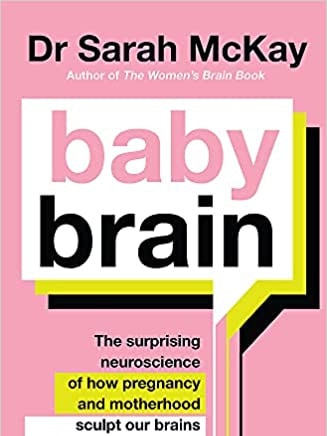How pregnancy rewires the female brain
Baby brain is not a myth. Far from dumbing down, pregnancy actually enhances cognition, and women carry traces of their babies physically: a child’s cells forever remain in its mother’s brain.

When the proposal for my first book about motherhood was doing the rounds in 2012, the response from publishers was consistent.
“Mothers,” one editor assured me, “don’t want to read seriously – they want funny books with cartoons about how pregnancy makes you fart.”
Advances in both neuroscience and our understanding of systemic gender bias have led to the publishing industry’s gradual recognition that many women – mothers, even – have an aversion to puerile books featuring cartoons of pregnant women farting.
I crave works such as Dr Sarah McKay’s Baby Brain: The Surprising Neuroscience of How Pregnancy and Motherhood Sculpt Our Brains and Change Our Minds (for the Better).
New Zealand-born Oxford-educated neuroscientist (and mother) McKay’s primary focus has always been on the question of nature, nurture or neuroplasticity in relation to the brain, and, in particular, to the maternal brain.
It is not a niche study: as McKay notes, some 80 per cent of Australian women become mothers, a process that leads to “a significant neurological transition”. The resulting changes to the brain are important and, in some cases, permanent. Far from dumbing down, pregnancy actually enhances cognition.
“In the animal kingdom,” McKay writes, “mammalian mothers are more efficient at problem-solving, learn quickly, have better memories, are less stressed, show less fear, and, when compared to their childless sisters, live healthier, more resilient lives.
“Human mothers, it turns out, are not that different.”
The intricate and monumental hormonal shifts triggered by pregnancy literally rewire the maternal brain, heightening sensitivity to infant cues and amplifying the desire to meet them. Women, McKay explains, also carry traces of their babies not only in the form of memories, but physically: a child’s cells forever remain in its mother’s brain.
What this also means, of course, is that we all die a little when our mothers die. “As early as two weeks after conception,” McKay writes, “foetal cells can be detected in the mother’s blood – as such, prenatal blood testing early in pregnancy can detect chromosomal abnormalities in the foetus. After a baby is born, the mother’s immune system sweeps into action and cleans her blood of the baby’s cells. But some cells persist and become entrenched in the mother’s organs, including in her brain.”
The phenomenon in question is known as microchimerism, a word derived from “chimera”, the mythological Greek creature with different animal parts – the face of a lion, a goat’s head on its spine, and a snake for a tail. Microchimerism, McKay points out, “may be in turn helpful and harmful to the mother (this is science in its infancy), but it’s been said there’s an ‘evolutionary tug of war’ between the biological demands of a mother and the infant she’s carrying.”
Siblings, too, carry within them traces of their older siblings, meaning that the eldest is, in essence, the most biologically independent. (Could this be a factor in the eldest child’s demonstrated propensity to lead? And is a younger sibling’s sense of identity biologically determined as being more susceptible to incursion?)
The increasing research emphasis on the maternal/infant relationship is changing the way motherhood is understood. Breastfeeding, for example, has been shown to result in an array of spectacular effects for mother and child. The oxytocin released in lactating rat females makes them “more resilient to electric shocks, looming predators or being challenged to retrieve pups via a complex maze”, and results in lower stress for human mothers.
In addition to the characteristic placidity experienced by untroubled pregnant women, there is the wonder of post-birth neurobiological synchronisation between a mother and her newborn. This unforgettable attunement of responses is the first biological evidence of maternal-infant attachment.

I disagree with McKay’s conclusion that maternal instinct per se does not exist, if only because her book reveals an unfortunate tendency to prioritise gender politics – she meekly tiptoes around the fact that “some people prefer not to use terms such as ‘women’, ‘mother’, ‘father’ or ‘breastfeeding’ in female reproduction and parenting” – and because my own experiences of motherhood, like those of other women I know, stand in stark contrast to some of her own.
Similarly, McKay’s politicised insistence that the idea of maternal instinct excludes “fathers, non-birth parents and other helpers and caregivers” is nonsense if only because maternal instinct is not synonymous with love but, rather, a unique experience of attunement, emotion, intensity and preoccupation. This uniqueness does not in any way negate the love or parenting skills of other parties but does challenge the very modern – and disturbingly subtle – cultural erosion of maternal significance.
Lessened in impact by this reflexive ideological conformity, Baby Brain is an otherwise engaging, beautifully researched introduction to the neural scaffolding of maternal preoccupation and behaviour, and, if nothing else, acts as a valuable counterpoint to the traditional Australian cartoon pregnancy manual about farting.
Antonella Gambotto-Burke’s new book Apple: Sex, Drugs, Motherhood and the Recovery of the Feminine is available online
Baby Brain: The Surprising Neuroscience of How Pregnancy and Motherhood Sculpt Our Brains and Change Our Minds (for the Better)







To join the conversation, please log in. Don't have an account? Register
Join the conversation, you are commenting as Logout